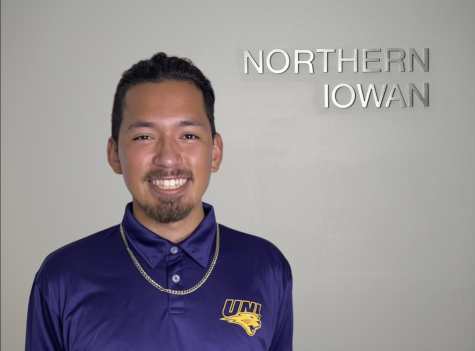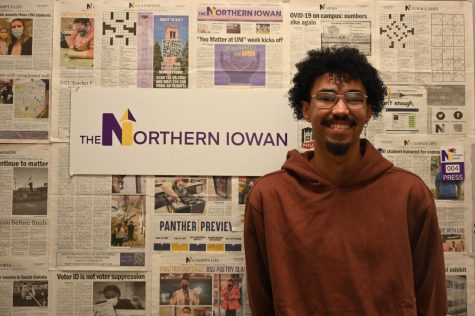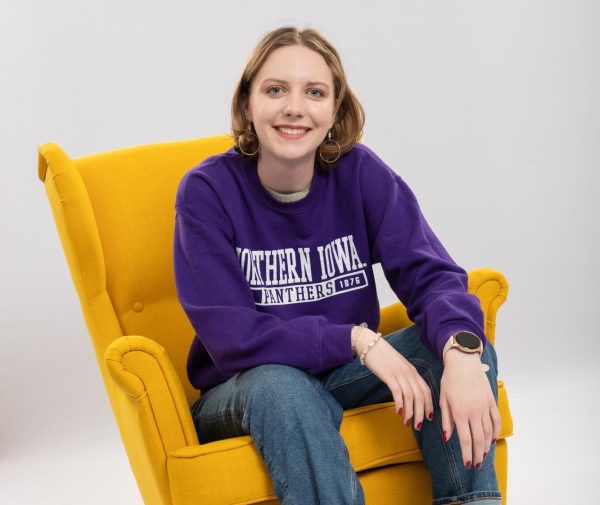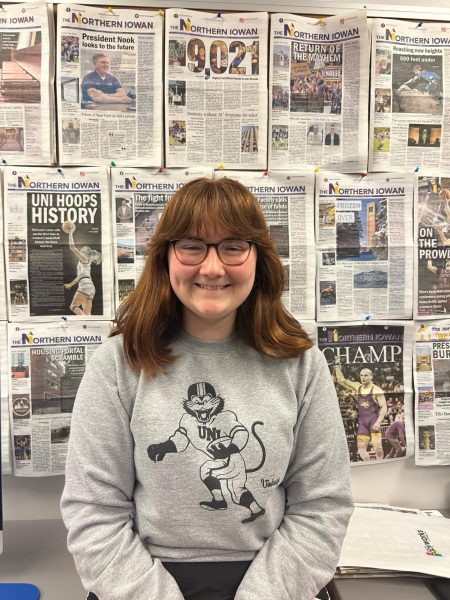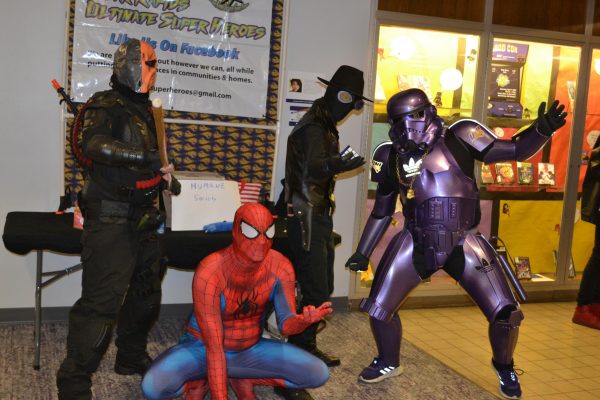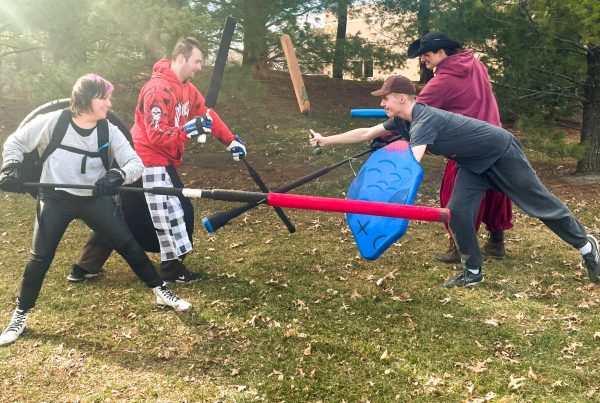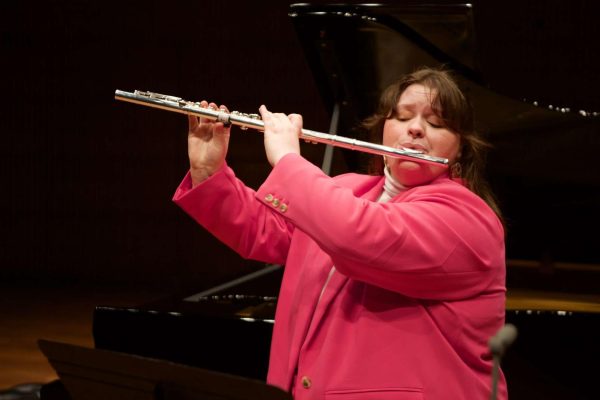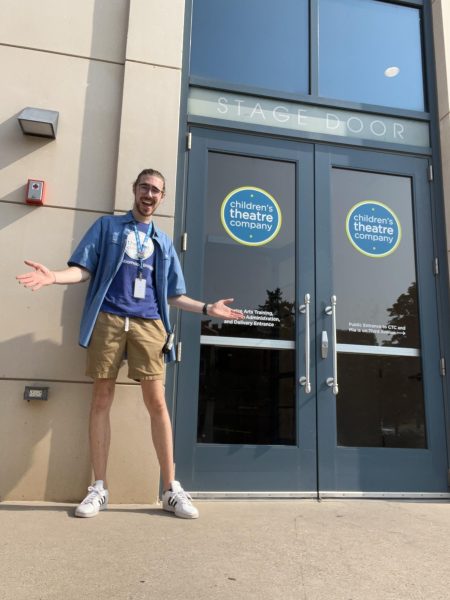Celebrating Latinx Leaders and advocates at UNI
Sep 14, 2022
Sept. 15 marks the first official day of Hispanic Heritage Month. It also marks Central Americans’ Act of Independence. On this day in 1821, Central America gathered in the City of Guatemala which ended the reign of the Spanish rule. 167 years later, United States President George H.W. Bush declared 31 days to honor the achievements and contributions of Hispanic Americans, including the independence of Central America. According to Data USA, 4.65 percent of students at UNI identify as Latino/Hispanic. UNI has had a variety of Latinx leaders walk on campus throughout the years and today many of their impacts continue to bring more leaders today.
Ever since she was six, Student Government Director of Mental Health Liz Montalvo’s goal has been to become a lawyer. She is currently pursuing her goal by gaining leadership experience through student government. She mentions UNI alumni Stephanie Flores-Montalvo has paved the way for her and inspired her to be the leader she is at UNI today.
“Mental health is very important. Especially, coming from a culture that’s marginalized mental health to be non-existent. I think it’s important to help break the stigma everywhere, especially here at the university,” Montalvo said “I want to give back to a larger community in Des Moines. So why not try and give back to a smaller community [at UNI] … I feel like when younger people see [Latinx] leaders that are in important organizations like student government and stuff…That’s why I have decided to take on bigger roles here.”
With Montalvo recently starting her role, her efforts are prioritizing students’ mental well-being and working with others to bring awareness of what to do next.
Madame President of UNIdos Yessenia Rodriguez currently helps lead events for the Latiné community including a commitment to bringing an understanding of the culture. Rodriguez has a wide spectrum of leadership from mentoring, and her participation in summer orientation and now she is looking into doing a master’s in student affairs to continue her impact.
“When I came in as a freshman, I wanted to make some kind of impact…My first org[anization] was UNidos, that was the first thing I joined. Laura was president at that time, and I loved her energy. I loved her vibe because I saw how much people looked up to her. She kind of inspired me into wanting to become that person.” She said: “It is empowering to me. I just feel like you don’t see many Latinos or Latinas being in a position of power.…If you look at our Supreme Court, we have Sonia Sotomayor.”
Justice Sonia Sotomayor is the first Latina to ever serve on the supreme court and Rodriguez is inspired by her. Rodriguez is also influenced by her older sister’s success in college and has since had similar success and more.
Janine Baeza, admissions assistant director of diversity recruitment resonates with Rodriguez on the lack of representation. Baeza is biracial and her family came from Michoacán, Mexico. She
is a first-generation college student and grew up in Sterling, Ill. She went to community college and transferred to UNI in 2015 then graduated in 2017. Ever since then, she has found her home and voice in admissions. “True, authentic mentorship is what motivates me today. I have a master’s degree and I’ve never once had a Latino teacher or college professor. In fact, almost all my educators and supplemental support from the time I was in preschool have been white. We seek mentors who look like us and share similar experiences as us.” She said, “We, as Latinx faculty and staff, can impact the way students experience UNI. We can be the mentors we sought ourselves and maybe never found.” Baeza works directly with schools that are largely predominantly students of color and coordinate programs that result in the success of upcoming and future students. She mentions being a Latinx leader includes making a commitment to represent on behalf of the community.“Oftentimes, I’m the only Latinx person in space. Representation matters for a lot of reasons, but sometimes the value I bring to those spaces is simply a different perspective. Sometimes different things are what we need in order to move forward.” Baeza said
Associate Professor of History Fernando Calderon, Ph.D., originally from California specializes in modern Mexican history, human rights, political violence and etc. shares that although Hispanic Heritage Month comes with good intentions it should be celebrated all the time. “It’s incredibly important to showcase the diversity of Latino culture because I think people still have a very simplified idea of Latino culture…within Latino culture, there’s so much more diversity,” Calderon said “[Latinos] They share a common history perhaps, and a common language, but they’re different cultures. So, and I think that celebrating the diversity that they’re heterogeneous of Latin America is super important.”
Many of the Latinx leaders and advocates of the University emphasize to young leaders to seek out and try new things. Calderon mentioned using college to stunt intellectual growth. Montalvo mentioned having to be uncomfortable every single day. Rodriguez pushes to redefine leadership roles and to embrace your identity. Baeza mentioned that change doesn’t happen without leaders and there is no age requirement in being that change – the only requirement is action.


